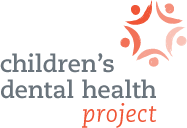The Children's Dental Health Project's blog
Maryland takes a critical, but incomplete, step toward better oral health
As recently reported in the Baltimore Sun, Maryland has taken significant steps forward to expand Medicaid dental coverage for some adults. A new pilot program will ensure some of the struggling adults who are enrolled in both Medicaid and Medicare can better access oral health services, including preventive care. This success was hard won. I commend the state’s lawmakers and range of advocates for advancing this coverage. But I firmly agree with former Maryland Dental Director, Dr. Harry Goodman, who noted "it is just a start," particularly given the many multi-generational gains that follow good oral health in adulthood. The impact of oral health among pregnant women and new moms offer a prime example.
While Maryland Medicaid currently covers dental care in pregnancy, its benefits end at birth – risking the health of both mom and baby. This policy is one of many that can block women’s access to needed care at a particularly critical time in her life and the life of her newborn.
State legislators should continue leading on oral health by unlocking the door to coverage for parents and all adults.
Kids are more protected against dental disease when their mother has good oral health. That supports children’s healthy development and academic success. Research shows that children free of dental disease earn higher grades than students with poorer oral health.
When parents are supported in getting their dental needs met, it also helps kids by benefiting families' economic security. As other Maryland community leaders have pointed out, "visible dental problems… are often barriers to employment…" Women with good oral health earn 4.5-percent more than their peers. That difference can mean a lot for children and families where mom is the sole breadwinner.
Thankfully, adult and maternal dental access improvements are progressing nationwide.
 Delaware just expanded Medicaid dental coverage for all adults. Michigan advanced coverage in 2018, and has successfully increased pregnant women’s access to needed care through a program placing oral health providers in health clinics’ OB-GYN departments. Support for Medicaid adult dental coverage continues to grow in Maine and in Arizona, as broad coalitions work to boost coverage during pregnancy.
Delaware just expanded Medicaid dental coverage for all adults. Michigan advanced coverage in 2018, and has successfully increased pregnant women’s access to needed care through a program placing oral health providers in health clinics’ OB-GYN departments. Support for Medicaid adult dental coverage continues to grow in Maine and in Arizona, as broad coalitions work to boost coverage during pregnancy.
In Congress, two proposals would close federal policy gaps to help more women address their dental needs during pregnancy and the postpartum period:
- The MOMMA Act (HR 1897/S916), led by Representative Robin Kelly (D-IL-02) and Senator Dick Durbin (D-IL). Maryland lawmakers who have cosponsored this measure include Sen. Chris Van Hollen and Reps. Jamie Raskin (D-MD-08), Dutch Ruppersberger (D-MD-02), Anthony Brown (D-MD-04), and Elijah Cummings (D-MD-07).
- The MOMMIES Act (HR 2602/1343) is led by Congresswoman Ayanna Pressley (D-MA-7) and Senator Corey Booker (D-NJ). No member of Maryland’s federal delegation has yet signed on to this bill, though Senator Ben Cardin has cosponsored previous versions.
When parents are supported in getting their dental needs met, it also helps kids by benefiting families' economic security.
Comprehensive approaches to ensure new mothers are healthy are all the more important as the U.S. struggles with a maternal health crisis. The American College of Obstetricians and Gynecologists have reported that the majority of pregnancy-related deaths happen after a woman gives birth. These varying policy solutions would take critical steps to improve women’s health holistically, during and after pregnancy.
As Dr. Goodman noted in his opinion piece, Maryland has a proud track record of improving oral health care for children after tragedy struck the Driver family. State legislators should continue leading on oral health by unlocking the door to coverage for parents and all adults. Taking this next step forward would go a long way to promote health and prosperity for every Marylander.
